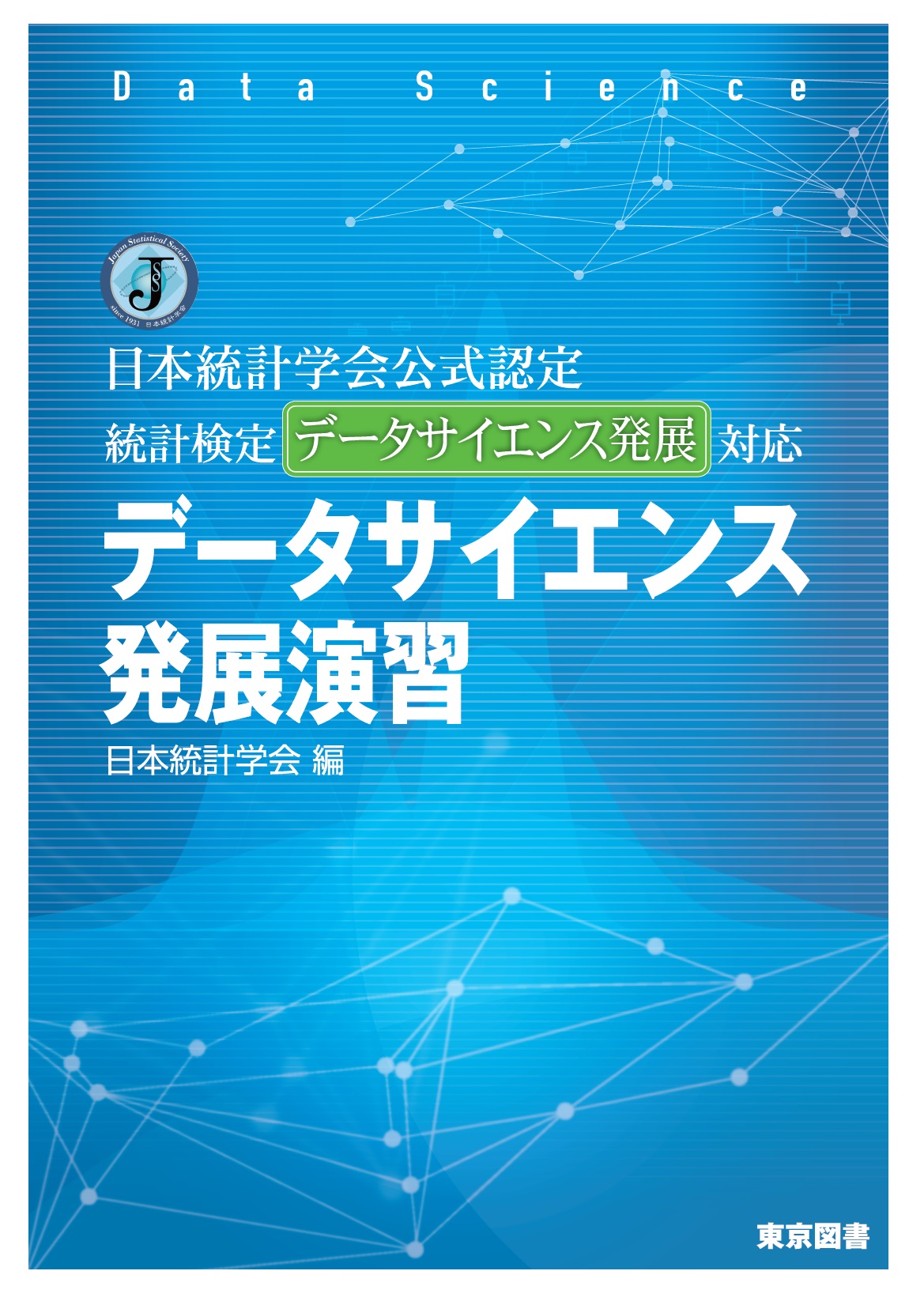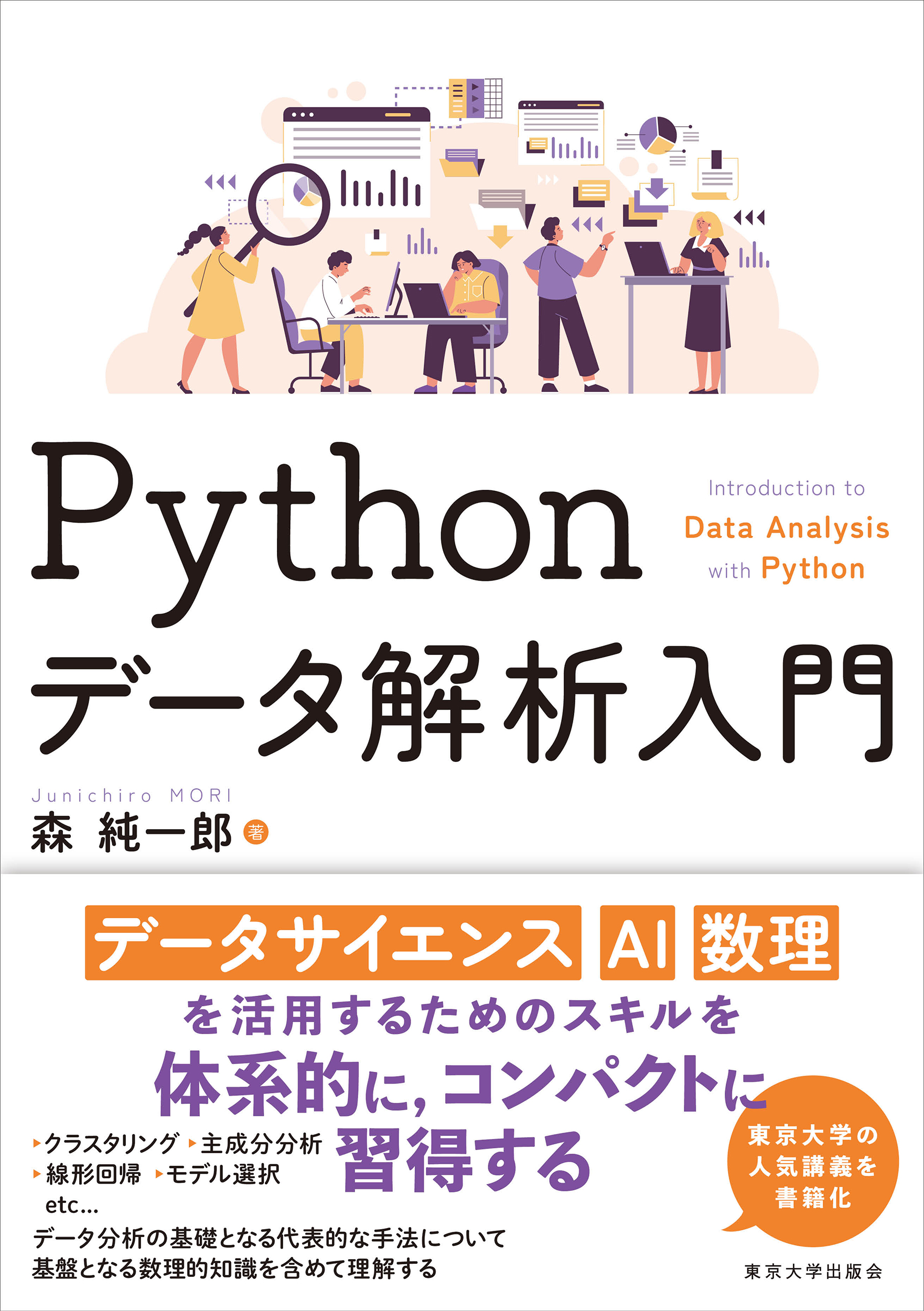
Title
Data Science Hatten Enshu (Data Science Advanced Exercise Book)
Size
368 pages, A5 format
Language
Japanese
Released
September, 2024
ISBN
978-4-489-02429-0
Published by
TokyoTosho Co., Ltd.
Book Info
Japanese Page
As society undergoes rapid digitalization, data has become increasingly essential in both work and research environments. As a consequence, there has been a growing demand for fundamental skills in data handling, including the ability to collect and analyze data in alignment with specific objectives, accurately interpret results, and apply insights to solve problems. In response, the Japanese government, as part of its AI Strategy, has been actively promoting systematic educational reforms, spanning from elementary and secondary education to higher education and reskilling programs for professionals, all aimed at developing human resources proficient in Mathematics, Data Science, and AI.
In response to this evolving landscape, the Japan Statistical Society and the Japanese Association for Promoting Quality Assurance in Statistics have developed a three-tiered competency assessment system within the framework of the widely recognized ‘Japan Statistical Society Certificate’ exam. These new exams — ‘Data Science, Basic Analytics,’ ‘Data Science, Advanced,’ and ‘Data Science, Expert’ — are designed to evaluate the proficiency of data science professionals based on domestic and international guidelines, model curricula for data science education, and educational standards.
This book is the official textbook structured in line with the ‘Data Science, Advanced’ examination. The ‘Data Science, Advanced’ exam features university-level questions on Ethics, AI, Mathematics, Informatics, and Statistics, aligned with the skill sets and model curriculum (Literacy Level) published by Japan Inter-University Consortium for Mathematics, Data Science, and AI Education. In the practice of data science, a broad understanding of Mathematics, Informatics, and Statistics, as well as the ability to combine and apply this knowledge, is essential. In addition, ethical considerations play a crucial role when handling data and implementing results obtained from data analysis. This book is centered around a variety of example problems from these perspectives, enabling readers to prepare for the exam by solving these problems and deepening their understanding of the fundamental concepts.
This book consists of eight chapters and an appendix, designed to facilitate effective preparation for the ‘Data Science, Advanced’ exam through hands-on practice. Chapters 2 through 5 describe a systematic overview of the foundational background necessary for the exam. Chapters 6 and 7 offer plenty of example problems covering single-discipline and multidisciplinary topics, along with detailed expositions of the answers and reasoning processes. Chapter 8 features a mock exam. After working through the example problems in Chapters 6 and 7, readers can further for the exam by tackling the mock exam in Chapter 8, which mirrors the format and number of questions in the actual ‘Data Science, Advanced’ exam.
By mastering the content of this book, you will gain a substantial foundation (though far from exhaustive) in the broad knowledge and ethical considerations required of a data scientist, along with the ability to integrate and apply them effectively. We hope this book not only helps you prepare for the 'Data Science, Advanced' exam but also equips you with the essential skills to succeed as a data scientist in society.
(Written by KAWAI Reiichiro, Professor, Mathematics and Informatics Center, Graduate School of Arts and Sciences / 2024)



 Find a book
Find a book






